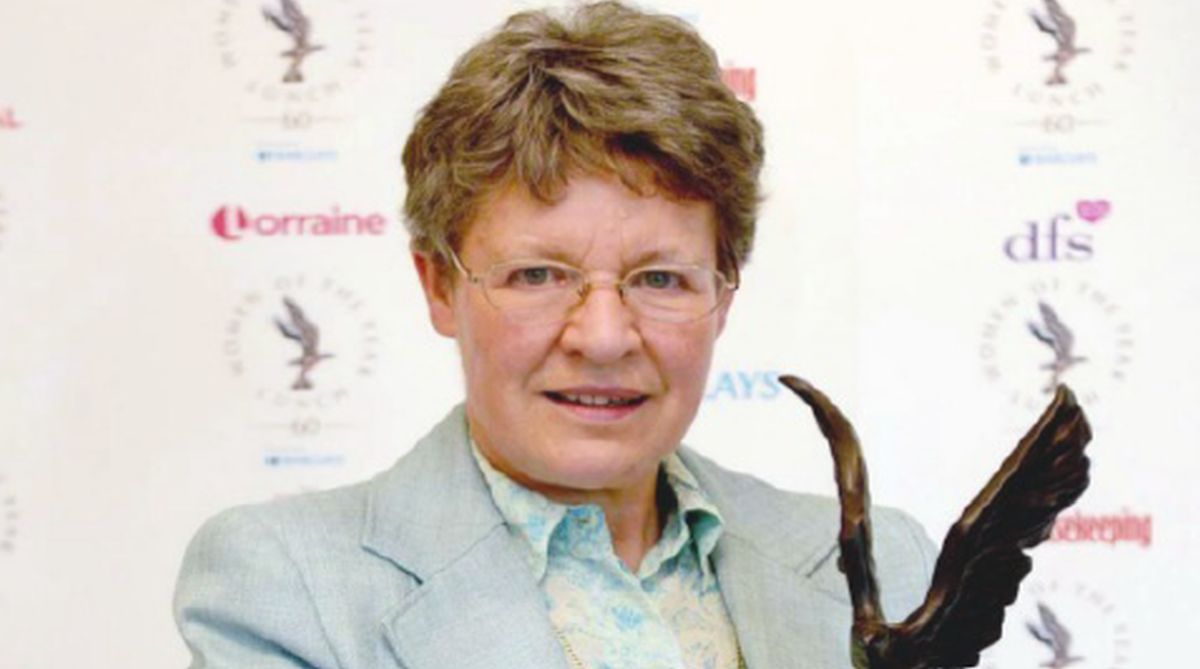Jharkhand unveils ambitious plans for education, science and innovation
The Jharkhand government has unveiled ambitious projects aimed at propelling the state into a new era of education, science, and innovation.
Controversially omitted from the Nobel Prize awarded to her male colleagues in 1974, astrophysicist Dame Jocelyn Bell Burnell has donated the entirety of a recent prize to boost diversity in science.

Professor Dame Jocelyn Bell Burnell.
A British astrophysicist has donated the entirety of her £2.3m prize from one of the world’s most prestigious science awards to promote diversity among researchers. Professor Dame Jocelyn Bell Burnell announced the money will be used to fund scholarships to help women, refugees and people from ethnic minority groups into the sciences.
The professor was awarded the Breakthrough Prize in Fundamental Physics last week for the role she played in the discovery of pulsars during the mid-1960s. Two of her male colleagues, Anthony Hewish and Martin Ryle, were handed the 1974 Nobel Prize in Physics for the research, but Bell Burnell was controversially overlooked as a co-recipient. “I don’t want or need the money myself and it seemed to me that this was perhaps the best use I could put to it,” she told BBC News.
Advertisement
Bell Burnell was a young research student at Cambridge University when she became the first scientist to observe radiation omitted from pulsars, small stars with huge masses that rotate at tremendous speeds. The precise and consistent timing at which pulsars spin makes them extremely reliable natural clocks for astrophysicists, who have since used them to help map the visible universe. The Belfast-born, York-educated scientist has in the past been diplomatic about her omission from the 1974 Nobel Prize, conceding at the time it was seen as a prize awarded only to senior male scientists.
Advertisement
However, she hopes her donation will pave the way for more ground-breaking discoveries by scientists from diverse backgrounds in the future. “I found pulsars because I was a minority person and feeling a bit overawed at Cambridge,” she added, “I was both female but also from the northwest of the country and I think everybody else around me was southern English.
“So I have this hunch that minority folk bring a fresh angle on things and that is often a very productive thing. In general, a lot of breakthroughs come from left field.”
The Breakthough Prize is awarded each year to recognise scientists who have made “profound contributions to human knowledge”. Sponsors of the prize include Facebook chief executive Mark Zuckerberg and Google co-founder Sergey Brin. Bell Burnell’s cash prize will be handed over to the Institute of Physics, which said the money would be used to “open the door” to the sciences for underrepresented groups. “This prize is an excellent and hugely appropriate acknowledgement of Jocelyn’s work,” said IOP president Dame Julia Higgins, “Her discovery of pulsars still stands as one of the most significant discoveries in physics and inspires scientists the world over.
“Her example of using insight and tenacity to make a discovery that rings through the ages stands her alongside the greatest of scientists. Alongside her scientific achievement, Jocelyn has become a hugely respected leader in the scientific community.
“She has been instrumental in making sure the issue of access to science by people from under-represented groups is at the very top of the science community’s agenda.”
The independent
Advertisement